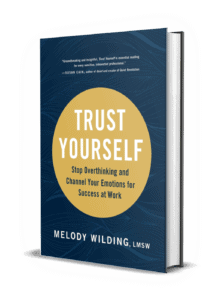You’re working hard and hustling to build a career you love. But you’re also tired, stressed, and feeling cynical about the future.
Could you be burned out?
Burnout refers to a collection of different physical, emotional, and mental reactions that occur in response to prolonged stress and overworking. Surprisingly, experts can’t agree on exactly how to define burnout, but in recent years its become recognized as an actual diagnosis among medical professionals.
Nevertheless, it’s important to be able to spot the signs and symptoms of burnout because it’s associated with a number of health problems. Chronic stress contributes to anxiety, depression, anxiety, cardiovascular disease, and emotional difficulties. Burnout changes the brain, impacting creativity, working memory, and problem-solving.
Identifying the Type of Burnout
Most people don’t realize there are three different types of burnout:
1. Overload burnout
With overload burnout, people work harder and ever-more frantically in search of success. They are willing to risk their health and personal life in pursuit of their ambition. They cope by complaining.
2. Under-challenge burnout
Signs of under-challenge burnout include not feeling appreciated, boredom, and a lack of learning opportunities. Because these people find no passion or enjoyment in their work, they cope by distancing themselves from their job. This indifference leads to cynicism, avoidance of responsibility, and overall disengagement.
3. Neglect burnout
This subtype of burnout results from feeling helpless at work. People may feel incompetent or unable to keep up with the demands of their job. These employees tend to be passive and unmotivated.
Signs That Point to Burnout
How can you tell if you or someone you know is crossing the line from stressed to burned out? Here are a few things to look for:
- Physical symptoms such as exhaustion most of the time, headaches, and muscle aches
- Getting sick often
- A negative attitude about work or your career
- Feeling like everything is overwhelming or your efforts are futile
- Neglecting your own needs, as if you’re a pushover
- Withdrawing from new responsibilities, challenges, and people
- Procrastinating, mainly avoidance or work or it taking longer because you can’t concentrate
- Short-tempered, especially with colleagues
- Difficulty sticking to regular self-care (i.e. exercise, eating well, etc.)
- Loss of motivation and optimism
Research finds that certain personality traits, like being a Type A, high-achiever can also contribute to burnout. You can act to reduce your stress by setting better boundaries, managing negative thoughts, and learning to speak up and be more assertive. Believe it or not, it’s possible to love your work and find joy in it, not dread.
Burnout is an insidious condition. It happens slowly, over a long period of time. But the consequences can be life-altering, which is why it’s important to spot the signs early.
Want to Learn More? Check Out My LinkedIn Learning Course
This course summarizes tools and strategies I’ve used over the past ten years with coaching clients at companies like Google, Amazon, and more.
Hope in the face of burnout from Managing Burnout by Melody Wilding, LMSW
Burnout is the norm for many high-achievers. Long hours and chronic exhaustion are normalized—if not celebrated—in many workplaces. A lack of boundaries between work and life can cause workers who previously felt fulfilled to feel resentful and unhappy.
It doesn’t have to be this way. And my LinkedIn Learning course, Managing Burnout, can help.
In this course, you’ll discover how to…
- Spot the signs of burnout and identify the internal and external causes
- Take control of habits that keep you stuck in a cycle of overworking
- Build resilience in the face of stress and high demands
- Renew your focus to approach your work with energy and enthusiasm
Start the course now for free with LinkedIn Premium or sign up for just $24.99.
Some of the links contained in this article are affiliate links. This means that I may receive a commission if you click on the link and make a purchase from the affiliate.









